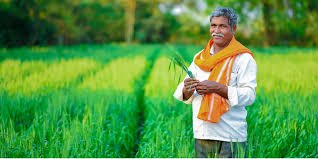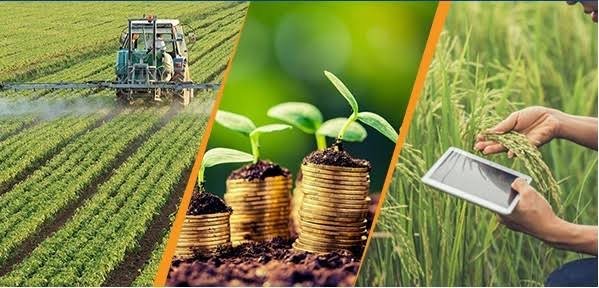First and foremost, hll always have, a basic need for survival, which is food. No matter how advanced we become through technology, science, fashion or luxury, without food, we are stalled in the progress of humanity. Farming is the one area that brings food to billions of people daily. Without farming, food security would be a nightmare, and human beings would be desperate for sustenance. Farming in contemporary times is a pillar for the world, and establishes food security and irrigation, all for the purpose of survival and growth for us in the present and coming generations.
Farming – The first step for humankind

If we are to discuss basic needs, farming is something that promotes human existence. Everything, and everyone, urban or rural, relies on the hard work of farmers for their food. If it were not for farming, wheat, rice, vegetables, fruits, everything is available through a system that is not possible without farming. Hence why farming is not just a profession, it’s a lifeline for humans each day.
Strong Connection between Agriculture and Economy

When discussing the basis of the economy, agriculture plays an important part. For nations like India, agriculture represents a considerable proportion of GDP. Millions of people rely on agriculture for their employment, either directly or indirectly, including over 300 million family farmers. Agriculture provides food, raw material for industries such as textiles, sugar, dairy and food processing, etc. A weak agricultural sector means a weak economy. That is why each government puts various schemes in place to enhance agriculture, because if agriculture is performing well, the economy performs well.
Environment and Agriculture Are Linked

Environment and agriculture are linked. Plants absorb CO2 and release oxygen which supports human life. Agriculture maintains a balance of soil fertility, the water cycle, and maintaining biodiversity. However, when heavy reliance on fertilizers and pesticides occurs, agriculture can contribute to environmental destruction. Sustainable agriculture, such as organic farming and crop rotations, stabilize our agricultural systems. Only if agriculture stabilizes the environment do we have resources available for future generations. Here are some photographs of textiles to stimulate conversations.
Farming and Culture – Our Identity
Every culture has a food identity. Dal-rice and roti-sabzi in India, corn in Mexico, pasta in Italy, and sushi in Japan don’t happen without farming. Farming is the bridge between culture and food. Farmers maintain traditions and heritage by producing food crops the way their ancestors have done and avoid change. If we ignore farming, we lose culture and heritage and with it an original color. The Great Real India Farming: The importance of farming for the world
Modern Technology and Future of Agriculture
Farming has progressed in technology from prior traditions. While smart irrigation, drones, AI-based crop monitoring, and hydroponics have advanced farming products, it is now possible for farmers to increase their yield with weather forecasting apps and machines. Technology may change but the farmer’s hard work demonstrates that farmer knowledge and hard work are constant. Technology is merely a tool. If there was no farmer knowledge and dedication, there would be nothing.
Global Peace and Food Security

Food insecurity is a catalyst for global conflicts. History has shown that when a region suffers from food insecurity, people migrate, riots break out, and wars follow. Large-scale agriculture relates to global peace since agriculture = food for everyone. A secure food supply decreases poverty and hunger and enables societies to achieve greater peace.
Farming and Sustainability – Need of the Future
Urbanization and climate change are shrinking the land and resources that we rely on for farming. If farming does not pivot towards sustainability, our next generations will face food insecurity. Solutions for a sustainable future include organic farming, vertical farming, and green irrigation. We must commit to environment-friendly practices in agriculture, or we will not be able to assure our future.
Conclusion – Farming is a lifeline
If there is a single thread to define the world, it is farming. Farming is the sector which keeps food, economy, environment, culture and peace all woven together. The Great Indian Farming and global agriculture to the world is a lifeline. Without farming, the world will have no culture, no economy, no environment and no humans. Farming is not only an occupation, it is the actual way to sustain the world.





Leave a Reply